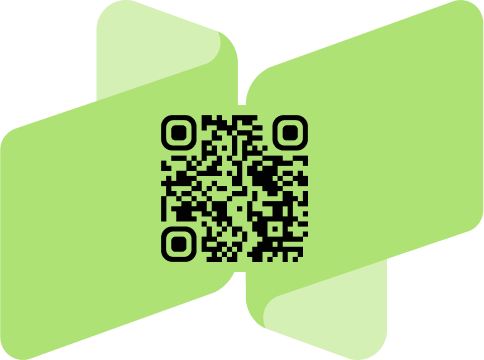Switzerland
Switzerland is a popular study abroad destination for international students, especially those who want to explore tourism management, business, and hospitality. Enveloped by beautiful mountainous terrain, filled with charming towns, lakes, and Alps, Switzerland offers you opportunities to explore its natural wonders, outdoor activities, and diverse cultural experiences.
Switzerland is home to globally recognized universities that blend a high quality of life with an exceptional academic environment. Studying in Switzerland helps students secure job and internship opportunities after graduation in multinational companies such as Roche, UBS, Novartis, and Nestle.
With its emphasis on industry collaboration, quality, and a research-driven approach, students can apply for the country's 6-month residence permit, which can help them transition to a work visa. In addition, the government has clear pathways to permanent residency for international students.

When does Switzerland Admit International Students?
Switzerland has three major intakes:
-
Fall Intake (September - October)
A popular intake for universities in Switzerland offers more programmes for students.
Application deadline: Between December and April
-
Spring Intake (February - March)
Application deadlines: Between September and November
-
Summer Intake (May - June) (Limited availability)
The summer intake is for some specific master’s programmes, short-term courses, and language programs.
Overview of Switzerland’s Education System
Switzerland has
-
Public universities (UNIs)
-
Private universities
-
Universities of Teacher Education (UTEs)
-
Universities of Applied Sciences and Arts (UASAs), also known as Fachhochschules.
Swiss schools offer German, French, Italian, and English courses, and many master's and PhD programs are taught in English.
Read: 168 Scholarships for International Students in 30 Countries
How to apply to Switzerland Schools
-
Choose a university/programme
International students should browse this site and select a university, the language of instruction, the level, and the field of study.
-
Check the admission requirements
Swiss universities set their own admissions criteria, meaning students must directly contact the admissions office of their choice.
Information on admission to Swiss universities:
-
Bachelor programme:
-
The upper secondary school-leaving certificate is considered to be equivalent to the Swiss Matura/Maturité/Maturità.
-
Visit Admissions to Universities to check whether your certificate is accepted.
-
Master’s programme:
-
A bachelor’s degree from an accredited university
-
Doctoral programme:
-
A master’s degree from an accredited university
-
Contact the university
Students should contact their choice universities to learn about application deadlines, required documents, admission procedures and enrollment.
Documents Required:
-
A printed and signed copy of your application form
-
Two passport photos
-
A copy of your international passport
-
Official academic transcripts from each university you attended
-
High school diploma /Bachelor’s degree
-
Language proficiency certificates for German, French, or English
-
CV
-
Evidence you paid the application fee
-
Personal essay or motivation letter
Tuition Fees and Living Costs
-
Public universities: Averaging CHF 1,000 – CHF 4,000 per year.
-
Private universities: Ranging from CHF 10,000 – CHF 40,000 per year.
-
Living costs: CHF 1,500 – CHF 2,500 per month, depending on the city.
Work and Study Opportunities
-
International students can only work 15 hours weekly during semesters and full-time during holidays.
-
For non-EU students, employment can only begin six months after starting studies, and the employer must get approval.
Post-Study Work Visa Policies
-
International students can apply for a six-month job search visa after graduation to find work.
-
Once employed, students can transition to a work visa, provided they meet salary and employment criteria.
Scholarship Opportunities for International Students
1. Erasmus+ Program
Switzerland participates in the Swiss-European Mobility Programme (SEMP) for exchange students.
2. Government Scholarships
Swiss Excellence Scholarships for Foreign Students pursuing postgraduate, which are highly competitive. The scholarships cover tuition fees, living expenses, and health insurance.
3. University-Specific Scholarships
Some popular university-specific scholarships include:
-
University of Lausanne Master’s Grants – Offers partial financial aid to international master’s students.
-
ETH Zurich Excellence Scholarship & Opportunity Programme – Covers full tuition and living expenses.
-
EPFL Excellence Fellowships – Provides financial support to outstanding master’s students.
4. External Funding Options
Several external organizations offer scholarships for students looking to study in Switzerland:
-
The Heinrich Böll Foundation Scholarships – Supports international students with strong academic records and social engagement.
-
Erasmus Mundus Joint Master Degrees – Offers fully funded scholarships in selected master's programs.
Read: How to Study in the Czech Republic: A Complete Guide for International Students
How to apply for a Swiss visa
Switzerland Visa Categories:
Short-Term Visa (Schengen Visa - Type C)
-
For stays up to 90 days within 180 days (tourism, business, short courses).
Long-Term Visa (National Visa - Type D)
-
For stays exceeding 90 days (students, research purposes, family reunification, or employees)
Swiss Visa Requirement for International Students (Type D Visa)
-
Completed Visa Application Form: Available on the Swiss embassy’s website.
-
International Passport: Must be valid for at least 6 months beyond your planned stay.
-
Passport Photos: Two recent photos meeting Swiss visa requirements.
-
Acceptance Letter: Proof of admission from the Swiss institution.
-
Proof of Accommodation: Switzerland (dormitory, rental agreement, or host invitation).
-
Motivation Letter: Explain why you chose the program and your future goals.
-
Academic Certificates: Copies of previous educational qualifications (e.g., degree certificates).
-
Proof of Payment: Tuition fee payment evidence.
-
Proof of Financial Means: Showing at least CHF 21,000 per year (€20,000) to cover living expenses in the form of any of the following:
-
A bank statement.
-
A scholarship letter.
-
A financial sponsor's guarantee.
-
CV/Resume: Detailing your academic and professional background.
-
Visa Fee: Around 80 Swiss Franc (CHF).
-
Health Insurance: Proof of valid Swiss or international health insurance covering your stay.
-
Return Flight Reservation: A reservation showing the intended return after your studies.
What are the Switzerland Visa Processes?
-
Students must submit their completed visa application and supporting documents to the Swiss Embassy or Consulate.
-
Students can attend an interview and provide biometric data.
Note: International students should apply for their visas at least three months before their departure dates because Switzerland's visa processing takes 6 to 12 weeks. After arriving in Switzerland, students must:
-
Register with the cantonal migration office within 14 days.
-
Apply for a residence permit by providing your passport, visa, and proof of enrollment.
Pay Your Tuition to Switzerland with Pay4Me
Paying your tuition fees to universities in Switzerland with Pay4Me is fast, secure, and convenient. You pay in your local currency without hidden costs or delays.Join thousands of international students who trust Pay4Me to efficiently handle their cross-border payments. Download the Pay4Me app today and begin your journey to studying in Switzerland.




